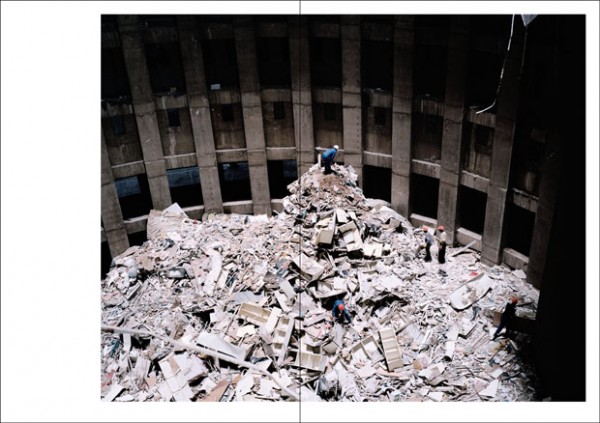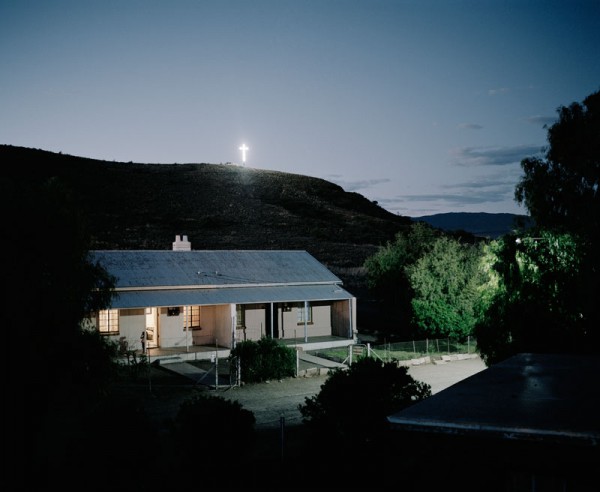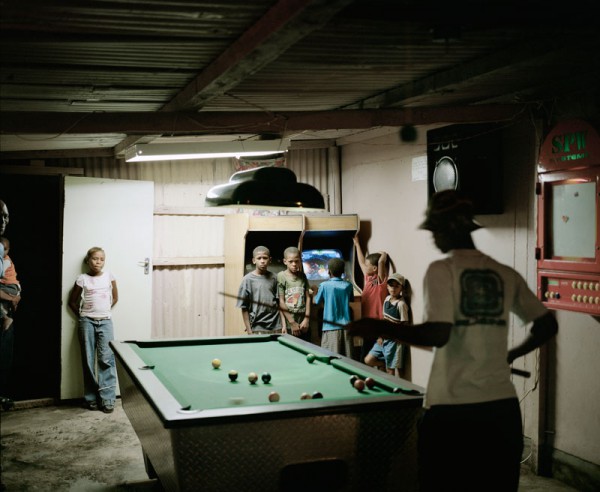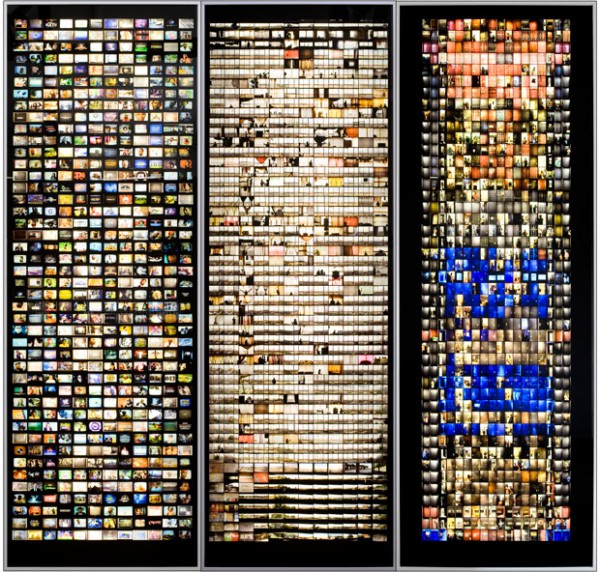From David Goldblatt’s arresting portrayal of its political complexities and social contradictions, and the Bang-Bang Club’s searing coverage of its township violence, to Guy Tillim’s portraits of day-to-day life in its cities, South Africa has produced a tremendous body of photographic work. Mikhael Subotzky, an immensely talented Cape Town-based photographer, rightly deserves his place in these ranks.

In his 2008 project “Beaufort West,” Subotzky’s focus in on South Africa’s neglected hinterland, on the comic absurdities of its everyday experience, its rising crime and unemployment. His images draw on the conventions of both fine art and documentary photography: a Crewsdonian image of a cross, bright on a hill at night, hits its mark as hard and as accurately as one of makeshift pool hall filled with kids waiting to grow up and take their turn at the table. Subotzky can never be accused of “sterilizing” the humanity of his subjects, as Alec Soth was recently; as viewers we viscerally feel the hurt and disappointment of life in a dusty desert passed by progress, the despair and desperation that leads to and from crime, and the simple joy of childhood.
Subotzky’s newest project, undertaken with Patrick Waterhouse and called “Ponte City,” narrows its focus to the ongoing revitalization of a landmark of Johannesburg’s skyline. An apartment tower notorious for the mountains of trash piling up in its open core, Subotzky and Waterhouse set out to document Ponte’s status as “a place of myth, illusion and aspiration,” where dreams of renewal continually play out against the reality of the glare of the TV. Indeed, their serial presentation of every door, every window, and every television screen, together a representation of the lived experience of the building’s inhabitants, is astounding.

Photography from “Beaufort West” (top two), and from “Ponte City” and its forthcoming book (bottom two)




One Trackback/Pingback
[...] said it before, but South Africa is really undergoing a photographic renaissance. And now, [...]